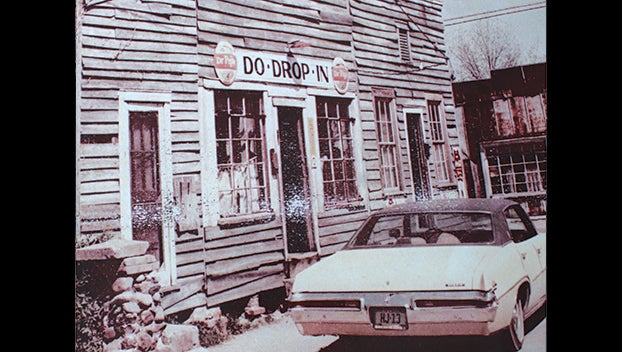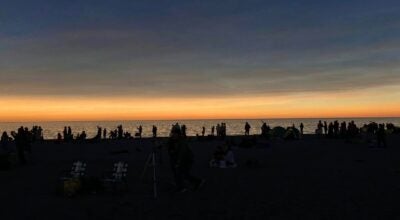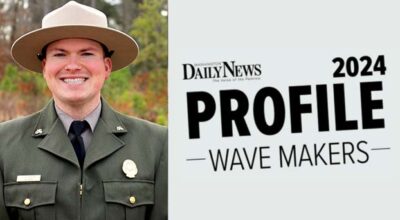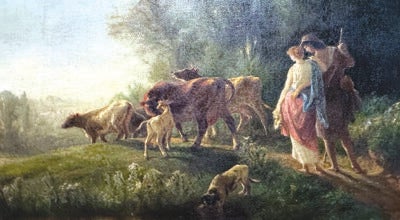Traveling Green Book Exhibit Coming to Washington
Published 6:25 am Wednesday, April 17, 2024
|
Getting your Trinity Audio player ready...
|
The North Carolina African American Heritage Commission (NCAAHC) Traveling Green Book Exhibit will be on display from April 24 to May 27 at the Turnage Theater. “The Negro Motorist Green Book,” published between 1936 and 1966, was both a travel guide and a tool of resistance designed to confront the realities of racial discrimination in the United States and beyond. The book listed over 300 North Carolina businesses in the three decades that it was published. The traveling exhibit features eight vibrant panels showcasing images of business owners, travelers, and historic and present-day images of North Carolina Green Book sites. The words of African American travelers and descendants of Green Book site owners are featured prominently in the exhibit. “The exhibit is simple in size but big in its impact,” said Kelly Shanafelt, executive director of the Beaufort County Arts Council. “It is really exciting to be able to host the exhibit at the Turnage through the end of May. There were over 300 sites in North Carolina that were listed in the Green Book, and this is a great opportunity to highlight those that were located here in Washington and Beaufort County. And the fact that we can do it for free, means the exhibit will be accessible to even more people.”
From 1939-1952 Washington had two locations listed in the in the Negro Motorist Green Book. Dr. Jermiah and Manilus Lloyd’s Drug Store at 408 Gladden Street and the StarLight Club at 227 Gladden Street. Both were located in what was known as “Little Harlem.” “Little Harlem’ was a major business, cultural, and social hub in Washingtons’ Black Community,” said Leesa Jones, director of the Washington Waterfront Underground Railroad Museum. “It was affectionately called ‘Little Harlem’ by many local residents because several New York business owners had stores and restaurants here and because renowned bands/singers working the ‘Chitlin Circuit’ came through Washington and performed in the clubs and halls on Gladden Street. The area stretched along Gladden Street between 2nd and 7th Streets and between Pierce and Market Streets along what is now Martin Luther King, Jr. Blvd.”
Jones added that businesses had to pay to be listed in the Green Book. “There were those who couldn’t afford to do it and others, because of safety concerns, elected not to do so because they didn’t want their addresses listed, but would financially support those who were listed in the Green Book,” said Jones. “However as motorists came to those two which were listed, they found guidance to other services in the area, all within a six-block radius. It was all a well, fine-tuned network.”
The exhibit is part of “The Green Book Project”, a special event series presented in partnership by the Beaufort County Arts Council, The Washington Waterfront Underground Railroad Museum, the Human Relations Council of the City of Washington, and the North Carolina African American Heritage Commission.
Those events include:
The Screening of the movie “Green Book” with an opening talk by renowned playwright and author Calvin Alexander Ramsey. The film won the Academy Award for Best Picture, Best Original Screenplay, and Best Support Actor. April 26 at 7:00 pm at the Turnage Theatre.
Walking tour of the Washington Green Book sites facilitated by Leesa Jones. The tour begins at Main and Gladden Streets by the Underground Railroad Museum and will end at Spring Garden Baptist Church at 6th and Gladden Streets. April 27 at 1:00 pm.
The screening of the movie “Ruth and the Green Book” which is based on the book by Calvin Alexander Ramsey and Gwen Strauss. The story follows 8-year-old Ruth and her family who are traveling from Chicago to Alabama in the 1950s. A talk-back session will be held by Ramsey.
April 28 at 3:00 pm at the Turnage Theatre.
All events are free and open to the public.
The mission of the North Carolina African American Heritage Commission is to preserve, protect, and promote North Carolina’s African American history, arts, and culture for all people.






